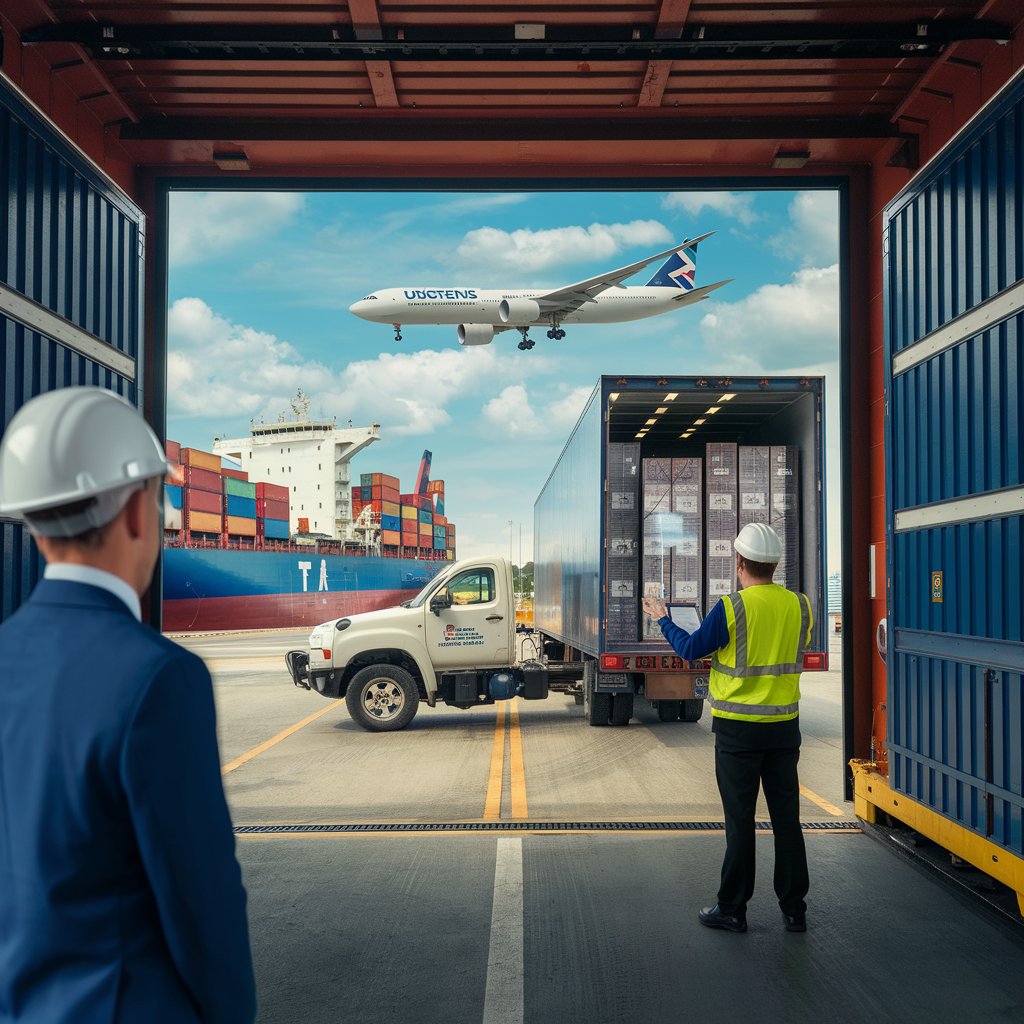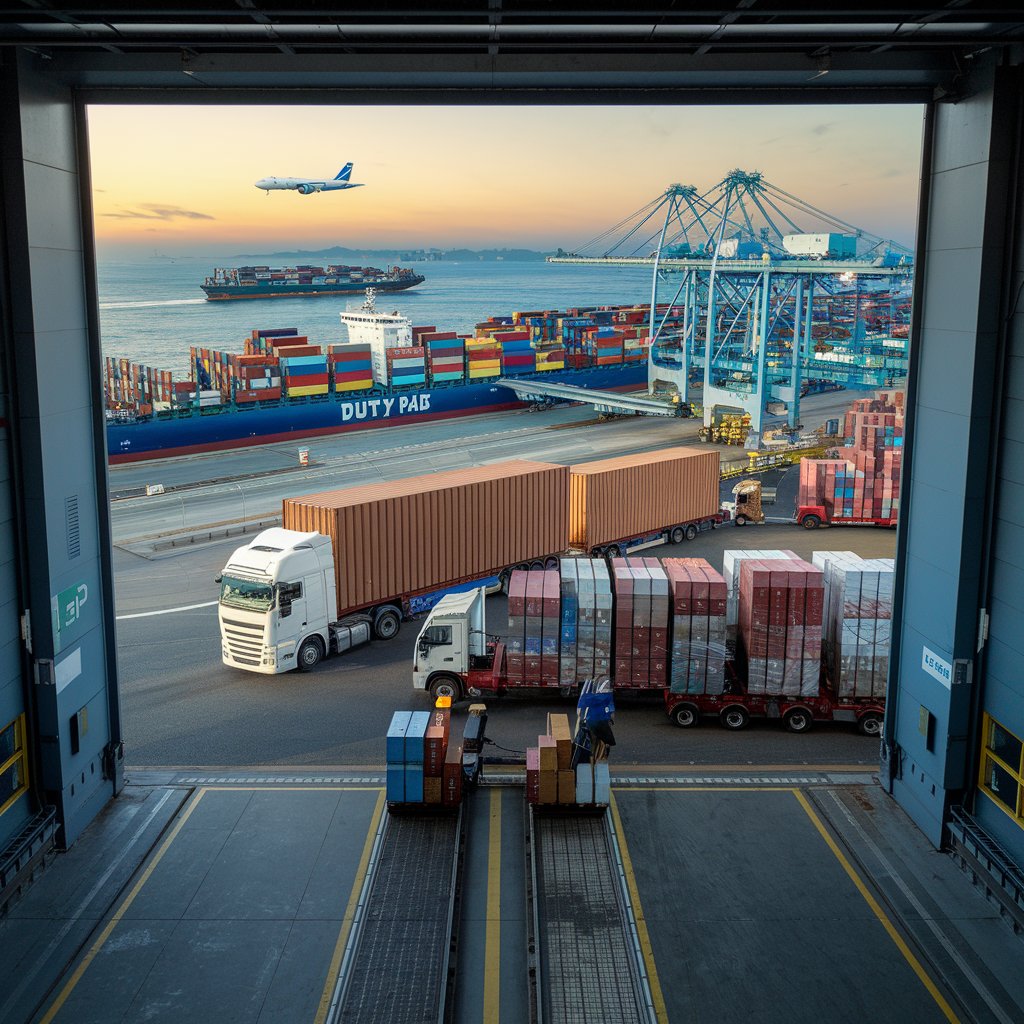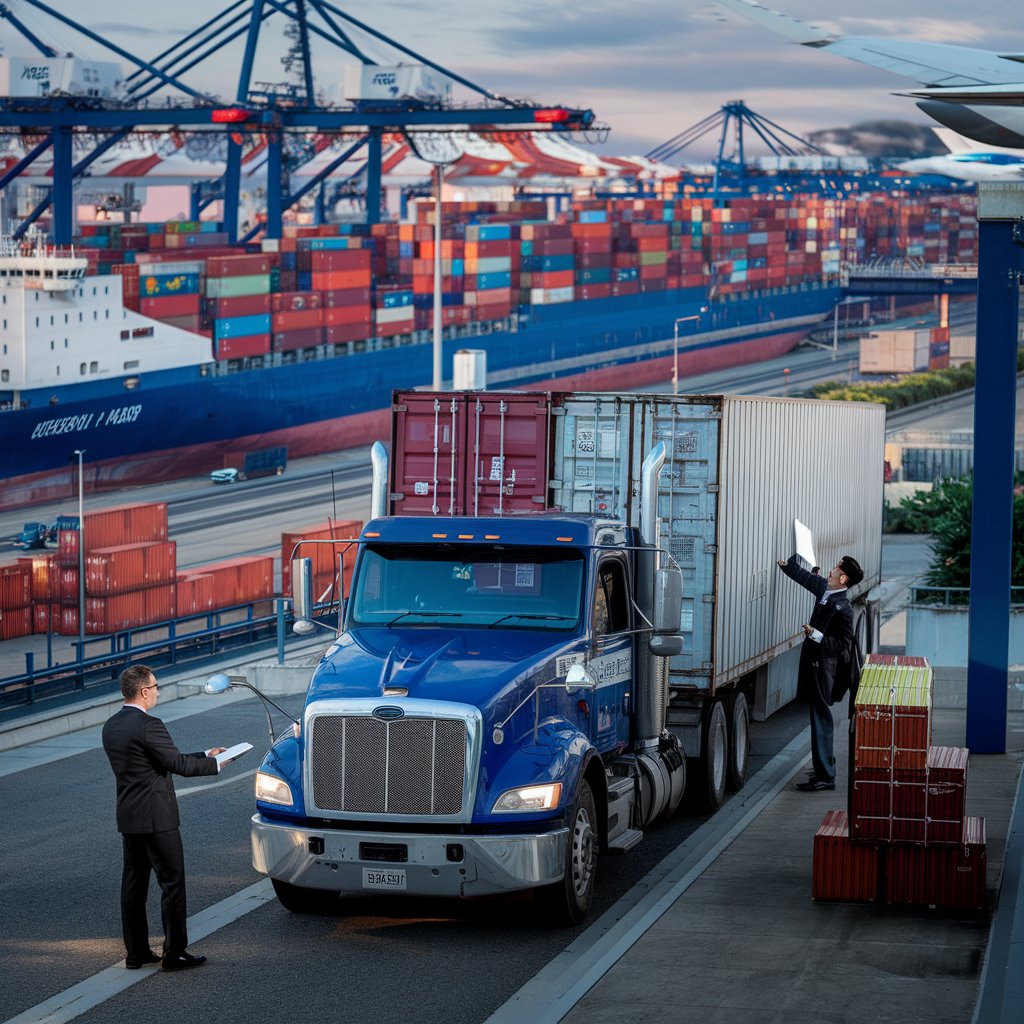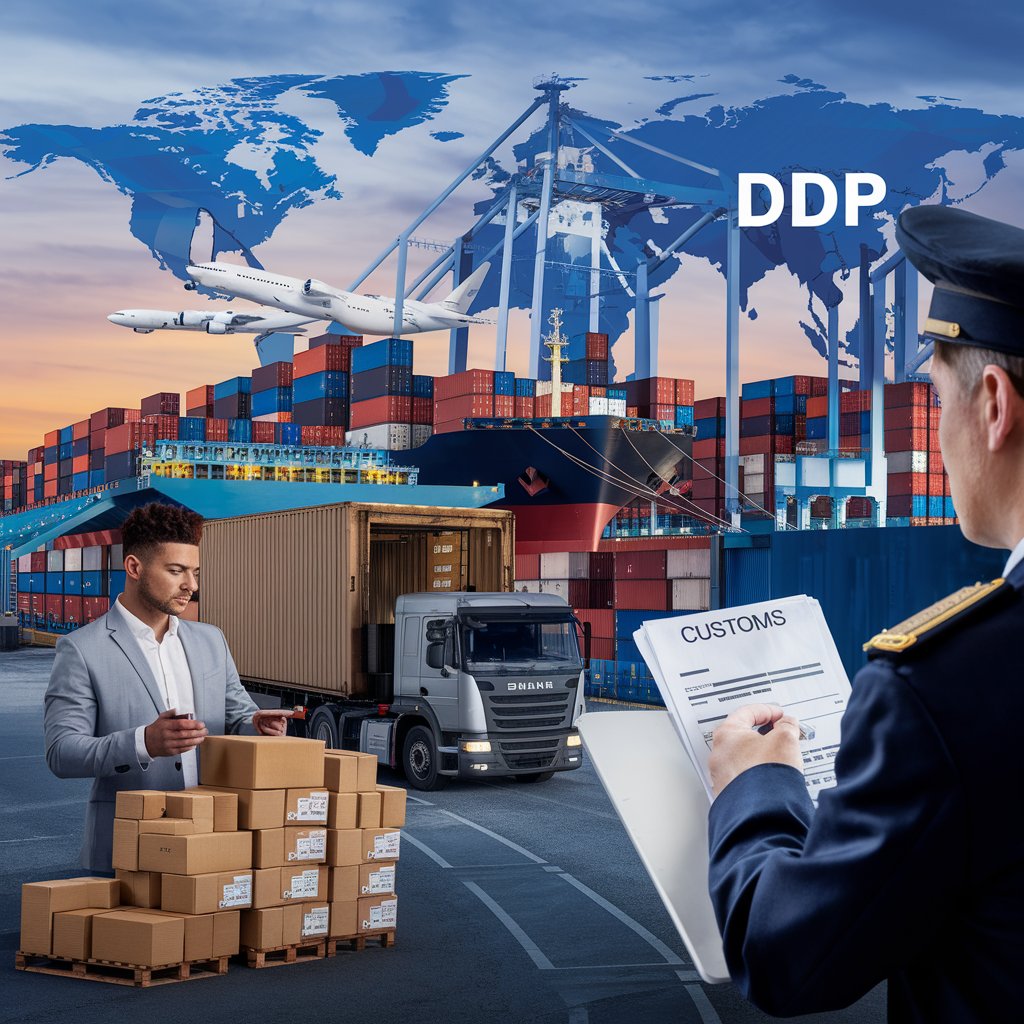/*! elementor – v3.23.0 – 05-08-2024 */
.elementor-heading-title{padding:0;margin:0;line-height:1}.elementor-widget-heading .elementor-heading-title[class*=elementor-size-]>a{color:inherit;font-size:inherit;line-height:inherit}.elementor-widget-heading .elementor-heading-title.elementor-size-small{font-size:15px}.elementor-widget-heading .elementor-heading-title.elementor-size-medium{font-size:19px}.elementor-widget-heading .elementor-heading-title.elementor-size-large{font-size:29px}.elementor-widget-heading .elementor-heading-title.elementor-size-xl{font-size:39px}.elementor-widget-heading .elementor-heading-title.elementor-size-xxl{font-size:59px}
Key Insights on Incoterm DDP
In international trade, Incoterms (International Commercial Terms) play a vital role in defining the responsibilities between buyers and sellers. One of the most buyer-friendly Incoterms is DDP (Delivered Duty Paid), which simplifies transactions by shifting the majority of the responsibility onto the seller.
But what exactly does DDP mean, and how does it impact costs, risks, and logistics in global trade?
In this guide, we will break down everything you need to know about the DDP Incoterm, including its key features, advantages, disadvantages, and practical applications in international shipping. 🚢📦
Discover more
/*! elementor – v3.23.0 – 05-08-2024 */
.elementor-widget-image{text-align:center}.elementor-widget-image a{display:inline-block}.elementor-widget-image a img[src$=”.svg”]{width:48px}.elementor-widget-image img{vertical-align:middle;display:inline-block} 
What Does Incoterm DDP (Delivered Duty Paid) Mean?
DDP stands for Delivered Duty Paid, meaning that the seller is responsible for delivering the goods to the buyer’s location, covering all costs, including transport, duties, and taxes. The risk remains with the seller until the goods arrive at the agreed destination.
📌 Key Aspects of DDP:
✔ The seller covers all costs related to transport, duties, and import clearance.
✔ The buyer assumes responsibility only upon delivery at the final destination.
✔ Applies to all transport modes, including air, sea, road, and rail.
✔ The seller must handle customs clearance and pay any import duties.
💡 Example: A manufacturer in Germany sells machinery to a buyer in Canada under DDP Toronto. The German seller handles all transportation, customs clearance, duties, and taxes, ensuring the buyer receives the machinery without additional costs or paperwork.
Key Features of Incoterm DDP
✅ Seller’s Responsibilities Under DDP
✔ Prepares and packages the goods for transport.
✔ Handles export clearance and documentation.
✔ Pays for transportation and insurance (if included).
✔ Manages import clearance, duties, and taxes in the buyer’s country.
✔ Ensures delivery to the buyer’s agreed destination.
✅ Buyer’s Responsibilities Under DDP
✔ Receives the goods at the agreed location.
✔ Handles unloading costs, if not included in the agreement.
✔ Verifies the condition of the shipment upon arrival.
✅ When to Use DDP?
✔ When the seller has better logistics capabilities and can manage duties and taxes.
✔ When buyers prefer a hassle-free transaction with no customs involvement.
✔ When selling to countries where buyers lack import experience.

Advantages & Disadvantages of Incoterm DDP
📈 Advantages for the Seller
✔ More Competitive for International Buyers – Buyers prefer DDP because it simplifies transactions.
✔ Stronger Market Appeal – Buyers don’t have to worry about customs or shipping logistics.
✔ Full Control Over Logistics – The seller manages the entire shipping process, ensuring efficiency.
📉 Disadvantages for the Seller
❌ Higher Costs – The seller pays for import duties, taxes, and shipping costs.
❌ Complex Customs Clearance – The seller must understand foreign import regulations, which can be challenging.
❌ Potential Tax Risks – Import taxes can fluctuate or unexpectedly increase costs.
📈 Advantages for the Buyer
✔ Minimal Responsibilities – The buyer only needs to receive the goods.
✔ No Customs Hassle – The seller handles all import clearance and taxes.
✔ Predictable Pricing – The buyer pays a fixed cost without unexpected charges.
📉 Disadvantages for the Buyer
❌ Potentially Higher Product Prices – Since the seller includes all costs, the final price may be higher.
❌ Limited Control Over Shipping & Customs – The seller chooses the shipping provider and customs broker.
❌ Delays if the Seller Fails to Handle Import Procedures Correctly.
DDP vs. Other Incoterms: How It Compares
|
Incoterm |
Who Pays for Transport? |
Who Covers Duties & Taxes? |
Risk Transfer Point |
Best Use Case |
|
DDP (Delivered Duty Paid) |
Seller |
Seller |
At the buyer’s location |
Buyers wanting a hassle-free transaction |
|
DAP (Delivered at Place) |
Seller |
Buyer |
At the buyer’s location |
Buyers who prefer to handle customs duties themselves |
|
CIF (Cost, Insurance, and Freight) |
Seller |
Buyer |
Once goods arrive at the port |
Ocean freight where insurance is required |
|
FOB (Free on Board) |
Seller (until port) |
Buyer |
Once goods are on the vessel |
Buyers handling their own logistics and customs |
💡 Key Differences:
✔ DDP is the most buyer-friendly Incoterm, as the seller manages everything.
✔ Unlike DAP, DDP includes import duties and customs clearance.
✔ CIF and FOB shift risk to the buyer much earlier in the shipping process.

How to Handle DDP Shipments Efficiently
If you’re using DDP agreements, follow these steps for smooth logistics management:
For Sellers:
✔ Work with experienced customs brokers to handle foreign import clearance.
✔ Include all taxes and duties in the total price to avoid unexpected costs.
✔ Choose reliable carriers to ensure safe and timely delivery.
For Buyers:
✔ Confirm that the seller understands local import regulations.
✔ Verify that the agreed delivery location is properly defined.
✔ Ensure there are no hidden fees beyond the agreed price.
When to Choose DDP Over Other Incoterms?
✅ Best Situations for DDP:
✔ When the buyer wants a hassle-free experience.
✔ When selling to countries with complex import regulations.
✔ When the seller has strong logistics and customs knowledge.
🚫 When DDP May Not Be the Best Choice:
❌ If the seller lacks experience with foreign customs regulations.
❌ If the buyer wants to minimize product cost by handling duties separately.
❌ If import duties are too unpredictable, making costs difficult to estimate.
Join us here
The Future of DDP in Global Trade
As international shipping and e-commerce expand, DDP is becoming more popular for businesses selling globally. Future trends include:
🚀 Automated Customs Processing – AI-driven solutions to simplify import procedures.
🚀 Blockchain for Trade Transparency – Enhancing security and tracking in DDP shipments.
🚀 Rising Demand for DDP in E-Commerce – Online retailers prefer all-inclusive pricing for international customers.
Businesses that leverage digital trade solutions will gain a competitive edge in handling DDP shipments efficiently.
Conclusion
The DDP Incoterm (Delivered Duty Paid) is the most buyer-friendly shipping term, simplifying transactions by placing full responsibility on the seller.
✔ Best for: Buyers who want a stress-free shipping process with no customs involvement.
✔ Challenges: Sellers must handle import duties and customs clearance, which can be complex.
By understanding DDP agreements, businesses can expand their global reach, optimize shipping logistics, and improve customer satisfaction. 🚢📦💼

